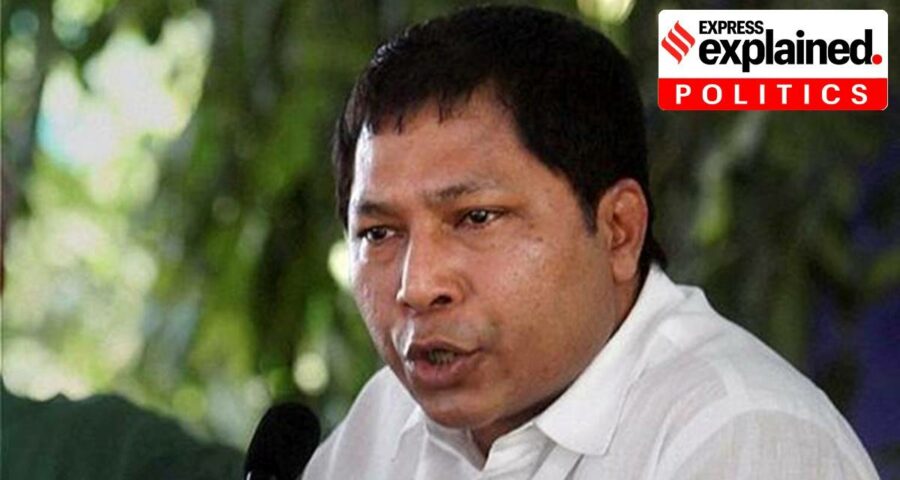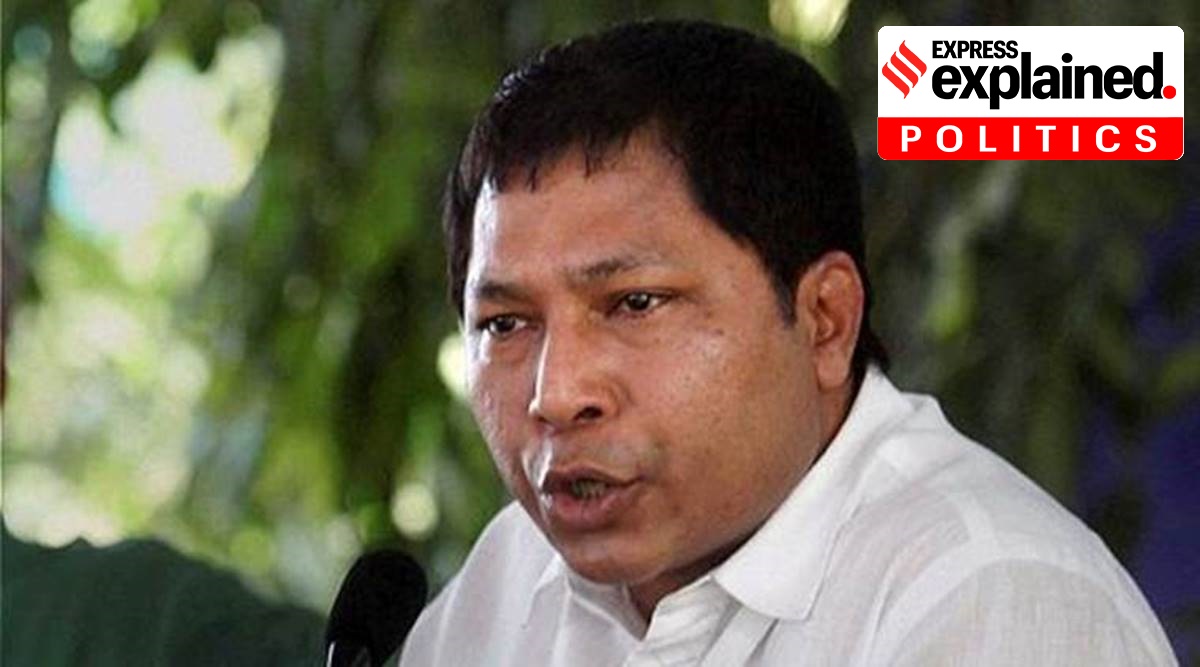The Congress has always attacked the BJP for poaching its leaders and destabilising its governments; now it faces a similar threat from an opposition fellow traveller.
The recent defection of 12 of the 17 Congress MLAs in Meghalaya, led by former chief minister Mukul Sangma, marks the erosion of the Congress in yet another state. The party will lose the position of main opposition in Meghalaya once these MLAs join the Trinamool Congress.
In Arunachal Pradesh, 43 of the then 44 Congress MLAs, including CM Pema Khandu, had quit the Congress in September 2016, joined the People’s Party of Arunachal and continued in power; months later, Khandu and a large number of MLAs joined the BJP.
In Arunachal, the BJP became the ruling party overnight; in Meghalaya, the Trinamool is set to the become the main opposition party through a similar, hostile takeover.
Why Sangma was upset
Sangma, leader of the Congress Legislature Party, had been upset since August when the central leadership appointed Shillong MP Vincent Pala as the state Congress president, replacing Celestine Lyngdoh. Sangma and a dozen-odd MLAs from the Garo Hills skipped a function in Shillong in September to felicitate Pala and the newly-appointed working presidents.
In early October, there were reports that Sangma had met a Trinamool Congress leader in Kolkata as also Assam Chief Minister Himanta Biswa Sarma in Guwahati. Although Sangma denied all this, the Congress leadership summoned the entire Meghalaya leadership including Sangma to Delhi that month. The Congress sought to send a message of unity ahead of by-elections in three Assembly seats — all of which it eventually lost.
Sources in the Congress, on the other hand, say Sangma had not been taking an active interest in party affairs for some time despite the party making him chairman of the North East Co-ordination Congress Committee.
Funds were another issue: sources say Sangma felt the Congress would not be able to fund the party’s campaign in a big way, a problem he felt he would not face in the Trinamool.
Switching over
Sources say members of Trinamool strategist Prashant Kishor’s team had been camping in Shillong for the last two months, trying to persuade MLAs to switch sides. Their task was to convince the MLAs that if a majority of them crossed over, they could escape action under the anti-defection law.
Sources in the state Congress said the central leadership was aware of all this. In another effort at rapprochement, AICC general secretary (organisation) K C Venugopal and AICC In-charge of Meghalaya Manish Chatrath met Sangma, Pala, senior leaders Charles Pyngrope and MPCC working presidents Ampareen Lyngdoh, Marthon Sangma and James Lyngdoh on November 18.
After the meeting, Sangma and Pala issued a joint statement resolving to consolidate on all strengths of the party to effectively overcome hurdles and challenges it in the run-up to the 2023 Assembly elections. But by then, Congress central leaders now realise, Sangma had already made up his mind, and he was taking the leadership for a ride.
Kishor is said to have also played a role in bringing former Goa chief minister Luizinho Faleiro and some others to the Trinamool Congress. Interestingly, Kishor had been in touch with Rahul Gandhi and AICC general secretary Priyanka Gandhi Vadra some months ago, and was tipped to join the Congress. But the unease among the senior leadership of the party over inducting Kishor, reportedly with a mandate to run and manage its campaign, prompted party chief Sonia Gandhi to put the proposal on the backburner.
Congress in disarray
In the 2018 Assembly elections, the Congress, which was in power until then, had emerged as the single largest party with 21 seats in the 60-member House. The National People’s Party of Conrad Sangma, now Chief Minister, had come second with 19 seats. Yet the BJP brought together Sangma’s NPP, some smaller parties and an independent MLA to deny the Congress a shot at power.
The Congress had rushed its top leaders — the late Ahmed Patel, then AICC general secretary in charge of the state C P Joshi, Mukul Wasnik and Kamal Nath — to Shillong to explore all options of government formation, but Himanta Biswa Sarma got the better of them.
The split now will deepen the perception that the Congress is not able to put its house in order in various states. As it is, the party is struggling shrug off the impression that it is drifting. In Meghalaya, it will find it hard to stand on its feet again.
Rise of Trinamool
The split will also change the political equations in Meghalaya. The rise of the Trinamool Congress – with no dearth of funds and with an electoral strategist like Kishor – could pose a challenge to the ruling dispensation, too.
The aggressive expansion drive of the Trinamool Congress has opened up a secular alternative to disgruntled Congress leaders who had an ideological aversion to joining the BJP.
Be it Faleiro in Goa, Sushmita Dev in Assam or Laliteshpati Tripathi in UP, the crossing over of leaders has shown that there is now a secular alternative to the Congress, and it is a party that is in power in a state and is taking on the BJP aggressively. The Congress has always attacked the BJP for poaching its leaders and destabilising its governments; now it faces a similar threat from an opposition fellow traveller.
These moves will further strain the Congress-Trinamool Congress ties. This will not just cast a shadow on opposition floor coordination in Parliament, but impact the wider anti-BJP unity, a mantra which all opposition parties keep chanting, but which is increasingly looking like a mirage now.
Newsletter | Click to get the day’s best explainers in your inbox
Source: Read Full Article


